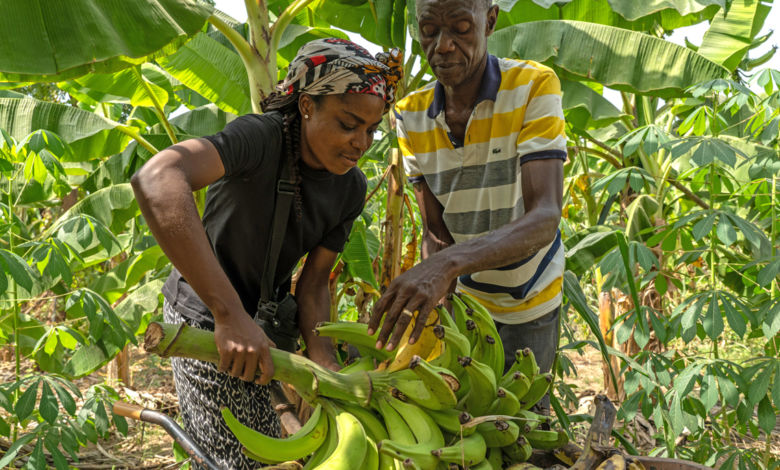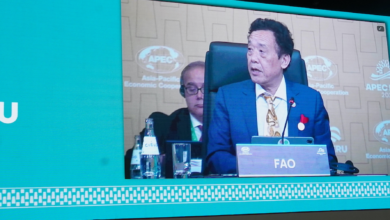Building bridges to entrepreneurship in Ghana and Nigeria
Helping women expand their access to finance and trade opportunities

Augustina Akosua Asor Tufuor’s entrepreneurial spark was ignited while she was a student at the University of Ghana Business School and enrolled in a course on business management. The same year, she met a group of rural farmers and saw the vast potential for local agricultural products, as well as the hurdles they faced.
“I witnessed firsthand how these farmers, most of whom were small-scale and women, would leave heaps of produce, mainly plantains, cassava and sweet potatoes, simply because they did not have available buyers and the cost of transporting back to their villages was very high. That would leave them with massive losses,” describes Augustina.
She also realized that the snacks that were available in the market were filled with artificial additives, preservatives and high levels of salt and sugar.
And from this a new business idea was born. With her own savings and family support, she founded Tropical Snacks, which creates all-natural plantain chips from surplus local produce. Her goal was to bridge the gap between small farmers and consumers while providing healthier snack alternatives for the Ghanaian market and beyond.
But she found it hard to expand operations. Access to finance, market information and adequate infrastructure posed significant barriers. Traditional financial institutions were reluctant to support a small, woman-led venture.
“When we first approached bankers for a loan, we were asked to make a deposit of GHS 20 000 (approximately USD 1 200) even before getting the amount we requested. We also had to get a professional evaluator to evaluate our business, which was expensive. Then there was the high interest rate which was over 36 percent,” she explains.
Her challenges are not uncommon. Women consistently face structural barriers that hinder their economic potential and impact their business operations in agrifood systems.
For women in agrifood systems in sub-Saharan Africa—where they make up a large proportion of the workforce—the hurdles are particularly steep, from lack of access to land, credit and technology to the gendered social norms that often undervalue their work.
According to a study by the International Trade Centre (ITC), over 70 percent of women-led businesses in Africa have insufficient access to financial services, while many also operate in the informal sector where they lack legal protections and access to training and market information.
Asma Begum Mirza, a 61-year-old Nigerian agripreneur, had a similar difficulty in accessing loans. In response to skyrocketing prices, Asma decided to grow rice in 2015 to help ordinary citizens access affordable food.
However, worsening security conditions in northern Nigeria soon disrupted her business.
“After about two years of successfully growing rice, it started becoming increasingly difficult and dangerous to go to the farm because of security problems,” she says.
She was eventually forced to relocate, leaving her rice farm behind and starting a new farm near Abuja. However, in doing so, she lost most of her customers.
Like Augustina, Asma faced significant barriers in securing loans as she tried to rebuild her business in a new location. High-interest rates and collateral requirements made it almost impossible to buy appropriate machines for commercial production, and her growth remained stifled.
See link for full story https://www.fao.org/newsroom/story/building-bridges-to-entrepreneurship-in-ghana-and-nigeria/en





